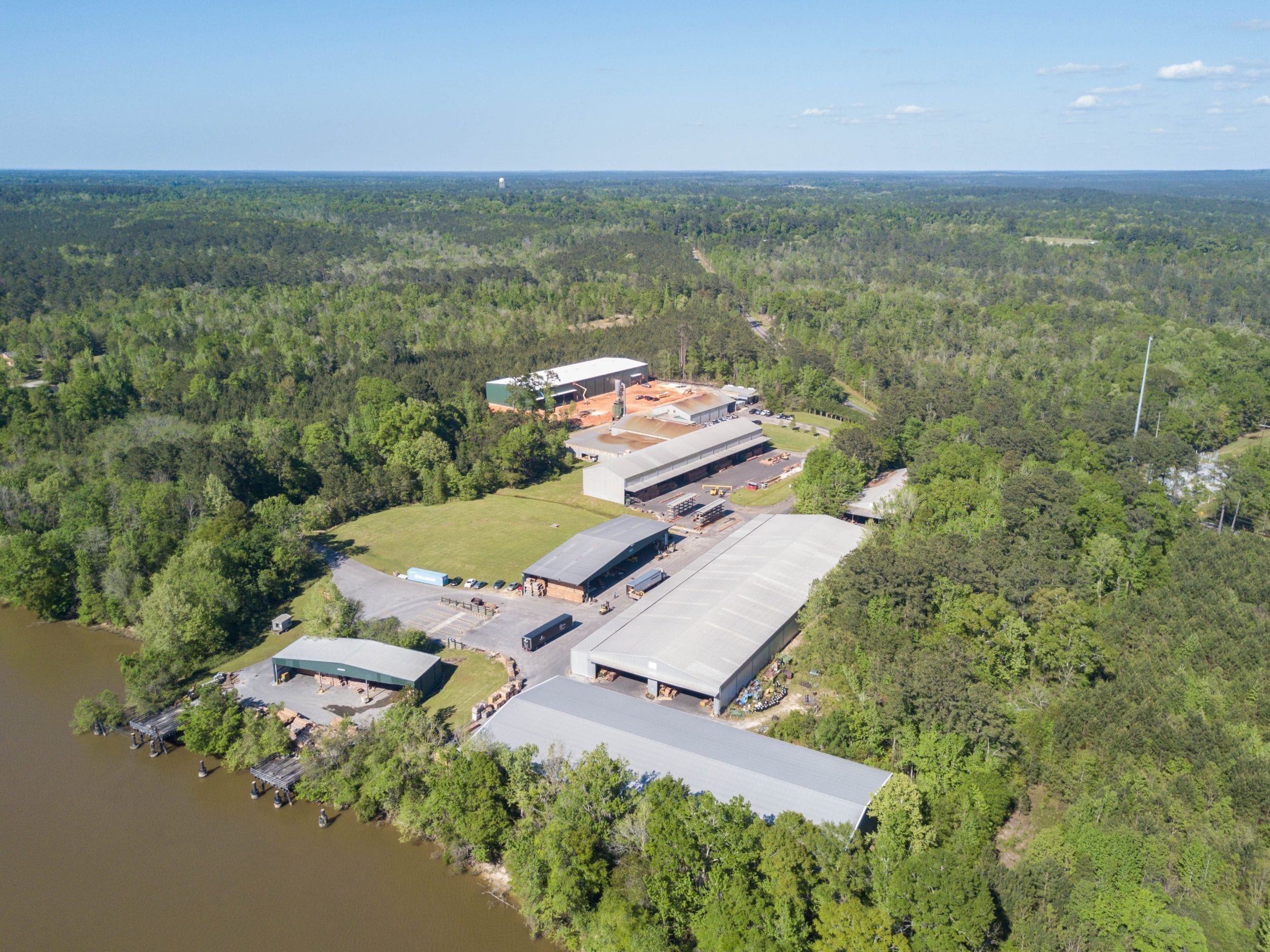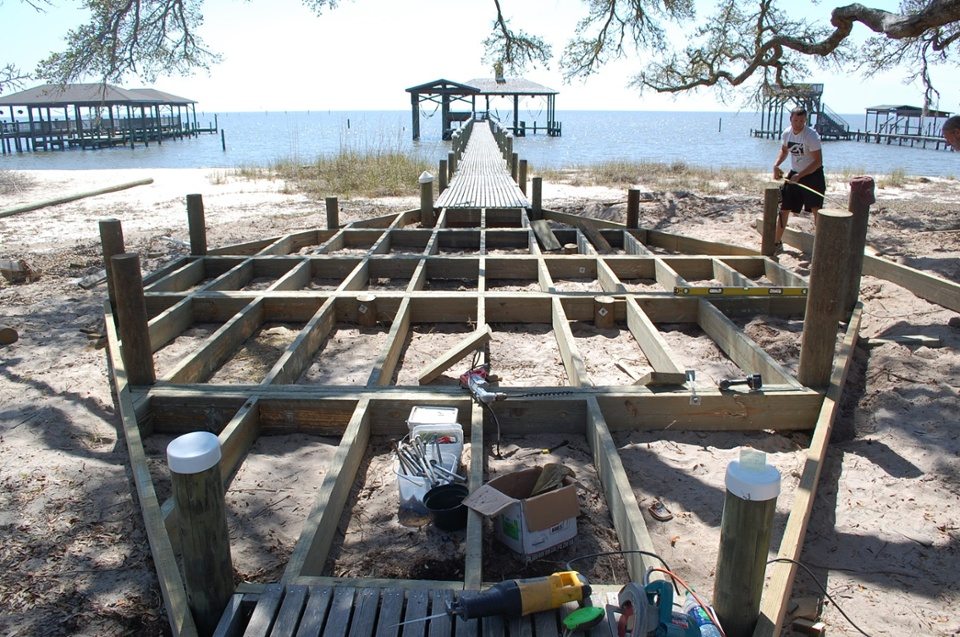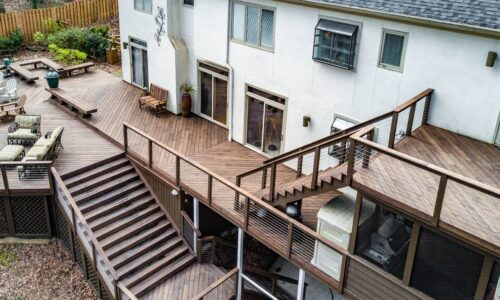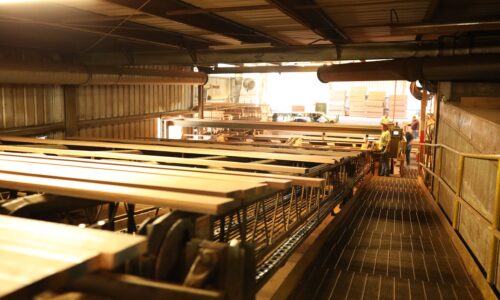When planning a deck, one of the first essential decisions is what material to use. There are many choices but this article will focus on comparing composite materials with tropical hardwood decking.
While both options have benefits and drawbacks, there are many compelling reasons to choose a tropical hardwood such as Ipe, Cumaru, Garapa, and Tigerwood for your next deck.
Installation Cost
Wood is generally quicker and less expensive to install than composite, due to framing. Composite decking requires a 16” on center spacing because it is too weak and flexible to withstand a wider span between joists. Hardwoods allow up to 24” on center spacing, depending on the deck pattern, saving time and money on installation.
Strength and Durability

Tropical hardwoods have a much wider range of both width and thickness than composite boards, giving them an advantage in strength and durability. Composite materials lack strength, bowing under heavy foot traffic, making them an especially poor choice for commercial use. Even in a residential application, sagging between joists is often noticeable.
Longevity

Some types of tropical hardwood decking, such as Ipe, can be built and then practically forgotten about, weathering to a beautiful, aged patina. If the weathered look isn’t desired, a tropical hardwood deck does need to have UV protectorate applied in order to preserve the original look of the wood. Composite decking has been manufactured for several decades now, and this product hasn’t quite aged as well as marketers promised. Tropical hardwood decks can easily last 30-40 years, depending on the environment. Although composite decking has a limited stain and fade warranty, it won’t outlast hardwood decking.
Look and Feel
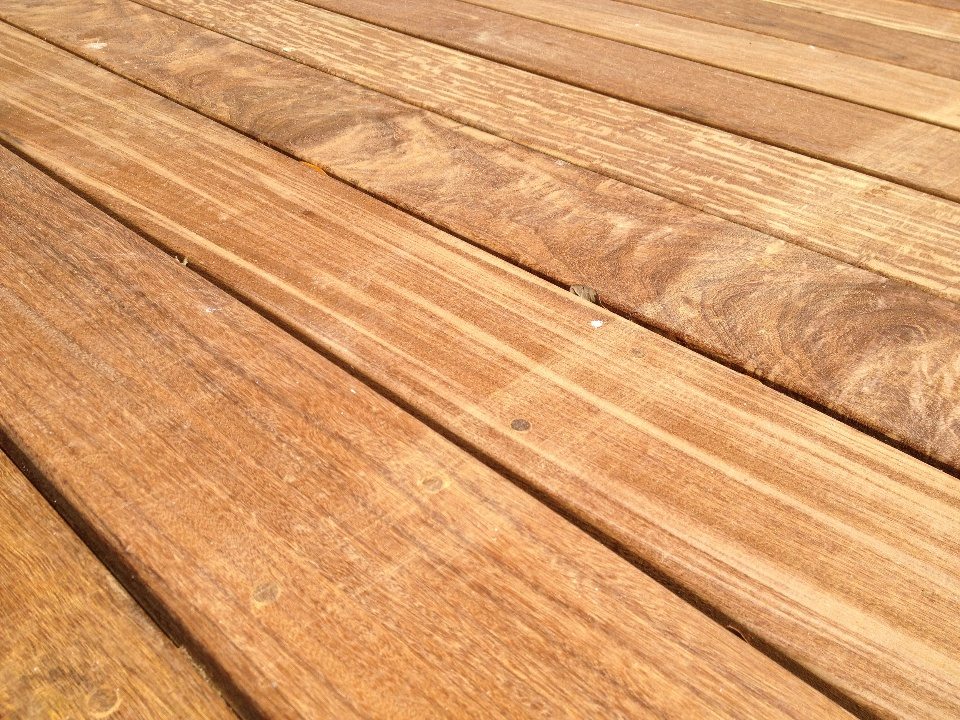
The strongest claim composite manufacturers can make about the beauty of their product is that it looks like real wood. At its very best composite wood is an inferior facsimile of true tropical hardwood. Why buy a substitute? There’s no way to truly emulate the natural grain, shade variation, and genuine appearance of actual wood. There is no comparison when it comes to aesthetics. Composite decking will also never feel like natural wood. Even as technology improves the look of composite decking, it will still feel like plastic. Another consideration is heat retention. This is most applicable to decks installed in very warm areas, such as the southern United States. Composite decking heats up approximately 10 degrees warmer than tropical hardwoods, making bare feet on the deck intolerable. Especially for decks intended for families with young children, this is an important detail.
Taking all factors into consideration, tropical hardwoods have the advantage. It will last for decades, decrease installation costs, feel like natural wood, and most importantly, bring a homeowner the pleasure of its beauty for a very long time, serving as the backdrop for many happy memories.

